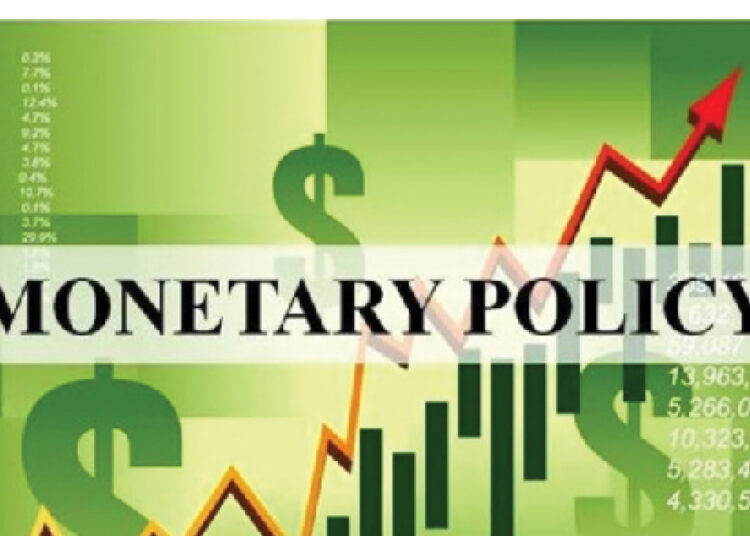As the Monetary Policy Committee (MPC) of the CBN meets this week, analysts say, they expect that there will be a halt in the tightening stance as the country awaits the announcement of the rebased Consumer Price Index (CPI), which measures the inflation rate.
The MPC set its 299th meeting for Wednesday, February 18 and Thursday, February 19, 2025 after it raised the monetary policy rate (MPR) by 25 basis points to 27.50 per cent from 27.25 per cent at its last meeting in November last year in its efforts to curb rising inflation.
According to analysts who spoke with LEADERSHIP, the committee will halt the tightening stance which had seen the benchmark interest rate rise by 475 basis points last year from 22.75 per cent to 27.5 per cent.
The consideration for holding rates, analysts say, include the need to see how the economy has performed so far before initiating another rate hike or cut. Former MPC member, Professor Michael Obadan noted that at this time, the MPC should be moderating its tightening stance pointing out that its action alone cannot curb the rising inflation.
With inflation reaching 34.8 per cent in December last year, Obadan said, the rate of deceleration has not been that impressive, adding that, “the monetary policy authority should be conscious of what the federal government is doing and the fact that it cannot address the inflationary problem alone.
“Therefore, if it is not convinced to reduce the monetary policy rate now, it should at least maintain the present level of monetary policy tightness without necessarily increasing the rates further. That is my own position. If I were still a member of the MPC, that would be a position I would canvass. Let’s maintain a hold and move towards gradual loosening of the tight monetary policy stance because it is clear that monetary policy actions alone cannot address the inflationary problem.”
To the managing director and chief executive of Cowry Assets Management Company, Johnson Chukwu, if the National Bureau of Statistics is yet to release the rebased GDP and inflation figures, the MPC will most likely maintain the status quo.
Inflation and growth figures play a crucial part in decision making for the MPC as it is a measure of its previous policy and determines if the economy needs a hawkish or dovish monetary policy. Chukwu noted that, because of uncertainties in terms of inflation figures from NBS, as well as GDP growth rate, “I think MPC’s most rational decision would be to hold the rates at their current level.
“The figures we have now may have become outdated. We should be looking at the current growth rate and the new inflation figure. I want to believe that the MPC wants to see the performance of the economy, so I believe the MPC will take a decision to hold pending when we see how the economy has performed.”
Asides this, Chukwu noted that happenings in the global scene would also inform the decision of the MPC, saying, “we have seen a Trump policy that has created a lot of volatility in the global economy. We are likely going to see an increase in cost push inflation in the US.
“We saw that the US inflation rate increased faster than most for the past one and a half years. So right now global monetary authorities are watching to see the direction of the global economy before they take further measures. The policy committees of other banks all decided to hold. So I think our MPC would like to hold.”
This was also the view of head of Research at Parthian Partners, Olufunmilola Adebowale, who noted that given the expected moderation in inflation and the stability of the Naira, the MPC is likely to take a cautious approach, opting to observe evolving economic conditions before making any significant adjustments.
“This decision is aimed at supporting economic stability while keeping inflationary pressures in check, especially as the effects of the rebased CPI methodology become clearer. The committee is also likely to proceed with caution, considering the potential inflationary effects of tariff imposition under President Donald Trump’s administration,” he stressed.
Prof Obadan while noting that the federal government’s fiscal policy is working at cross purposes with the CBN’s fight against inflation said, “complementary fiscal actions are required, but that does not appear to be forthcoming as of now given the highly expansionary 2025 budget of the federal government.
“Sharp increase in the size of the government budget which is likely to be financed, partly through monetary financing. It is very unlikely that once the budget implementation commences, that the rate of inflation will reduce. This is because the federal government is conducting fiscal policy, which is at cross purposes with the monetary policy stance.
“Federal government through its fiscal policy actions needs to also play its part , which at the present time is not doing well, because it continues to expand fiscal actions, which have expansionary implications for monetary policy. And that is not helpful to curtailing the inflationary surge.”





